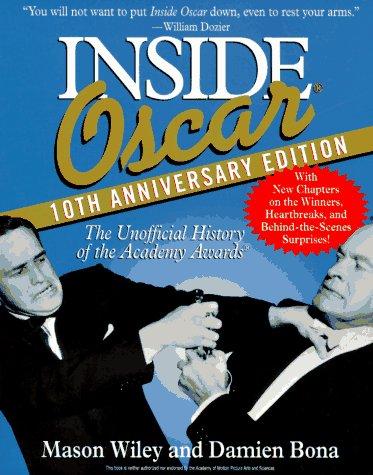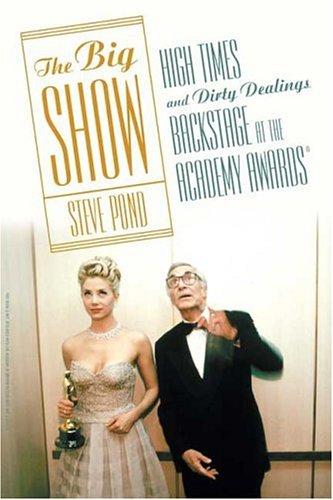I’m going to be blunt: The Oscars are meaningless.
Being named Best Picture doesn’t mean a movie is the “best,” nor does it mean that it’s actually any good at all. (I’m looking at you, Crash.) The Academy of Motion Picture Arts and Sciences distributes awards based on whatever is popular at the moment, what actor’s “time has come” and how many people Harvey Weinstein rubbed shoulders with at parties sponsored by Vanity Fair. As a result, Oscar history is riddled with more misses than hits, and, quite often, the films crowned Best Picture are eventually reduced to trivia questions and “What were they thinking?” columns. (That same fate awaits you, The Artist, no matter how charming you are at the moment.)
And yet, I love the Oscars. I love waking up early to watch the nominations be announced. I love reading about who’s ahead and predicting the winners and filling out the ballot in the office Oscar pool. I love the awkward red carpet interviews and rating the acceptance speeches and judging the fashions. No, I don’t think the Academy Awards are a true judge of quality. They’re a spectacle, a parade, a pageant. I wouldn’t want it any other way.
Seeing how the Academy Awards have been around for more than eight decades, there are surprisingly few books devoted to them. Sure, you can read about the Oscars all over the Internet nowadays, and its rare when a celebrity autobiography doesn’t include at least one mention of them. But books solely about the Oscars are few and far between. Luckily, I’ve found a few. And they’re pretty darn good. So, in the spirit of Oscar weekend, here are three books that Oscar fans and movie buffs will love:
 INSIDE OSCAR by Mason Wiley and Damien Bona
INSIDE OSCAR by Mason Wiley and Damien Bona
This zippy, gossipy history of the Oscars is as big as a phone book and filled with just as many bold names. What Wiley and Bona do is take readers on a crash course through Academy history, starting in 1927. Each chapter is dedicated to a year in film, briefly outlining the major contenders, what the critics thought of them and who came out on top. Along the way, there’s lots of catty comments, backstage drama and choice quotes. Those longing for depth should look elsewhere. Interested in the socio-economic conditions of the seventies that led to Rocky winning best picture? Sorry, that’s not here. Want to know all about Sacheen Littlefeather or the streaker who shared the stage with David Niven? Well, this is the book for you.
 THE BIG SHOW: High Times and Dirty Dealings Backstage at the Academy Awards by Steve Pond
THE BIG SHOW: High Times and Dirty Dealings Backstage at the Academy Awards by Steve Pond
From 1994 to 2004, journalist Steve Pond was given unprecedented backstage access to the Oscars. He wrote about his experiences in the much-missed Premiere magazine before compiling the articles into a book. The result is a fascinating, fly-on-the-wall look at what happens before, during and after an Oscar telecast. Pond gets deep into the heart of the show, revealing what celebrities chat about backstage, how the producers got Woody Allen to appear during the 2002 ceremony and how much flop sweat David Letterman was shedding during his disastrous 1995 hosting stint. As the title suggests, there’s plenty of gossip packed in THE BIG SHOW’s pages, but the book is more than a tawdry tell-all. It’s a funny, in-depth look at just how much work goes in to putting on the Oscars.
 PICTURES AT A REVOLUTION: Five Movies and the Birth of the New Hollywood by Mark Harris
PICTURES AT A REVOLUTION: Five Movies and the Birth of the New Hollywood by Mark Harris
In 1967, the five Best Picture nominees were Bonnie and Clyde, Doctor Dolittle, The Graduate, Guess Who’s Coming to Dinner and In the Heat of the Night. Strange bedfellows, to be sure. Mark Harris, who has written some great pieces about the current Oscar season over at Grantland, delves into the making of those films to examine the seismic shift old Hollywood was experiencing at the time. And, to paraphrase Dylan, the times were definitely a-changin’. The days of dull and expensive studio epics (Doctor Dolittle) were slipping away, replaced with movies about race (Guess Who’s Coming to Dinner, In The Heat of the Night), sex (The Graduate) and violence (Bonnie and Clyde). Harris supports his study by interviewing, oh, everybody who had anything to do with all of those movies. It’s an exhaustive look at how movies are created, how they reflect the times in which they were made and how, sometimes, the Oscars can sum up a generational shift with just a list of five nominees.
